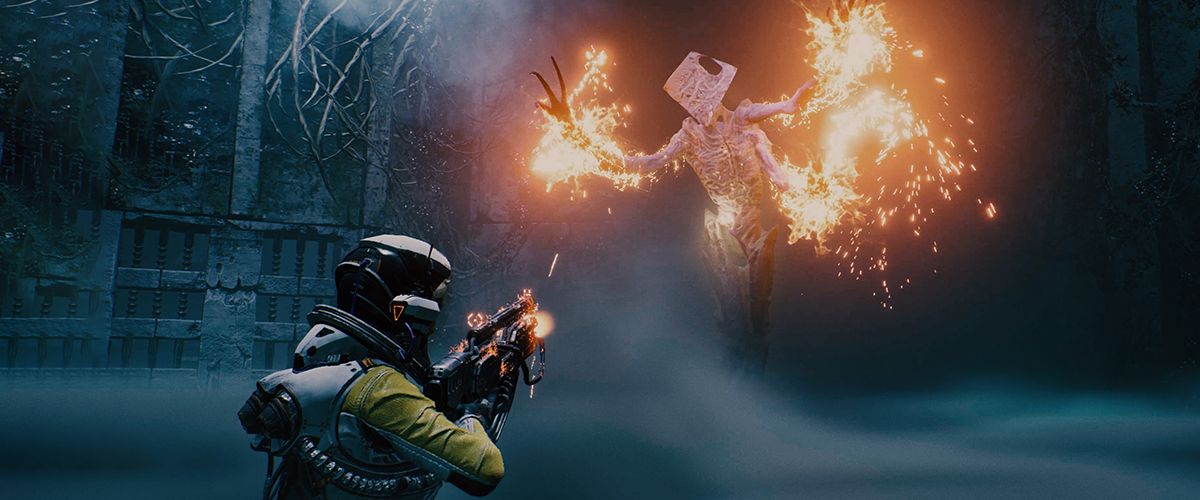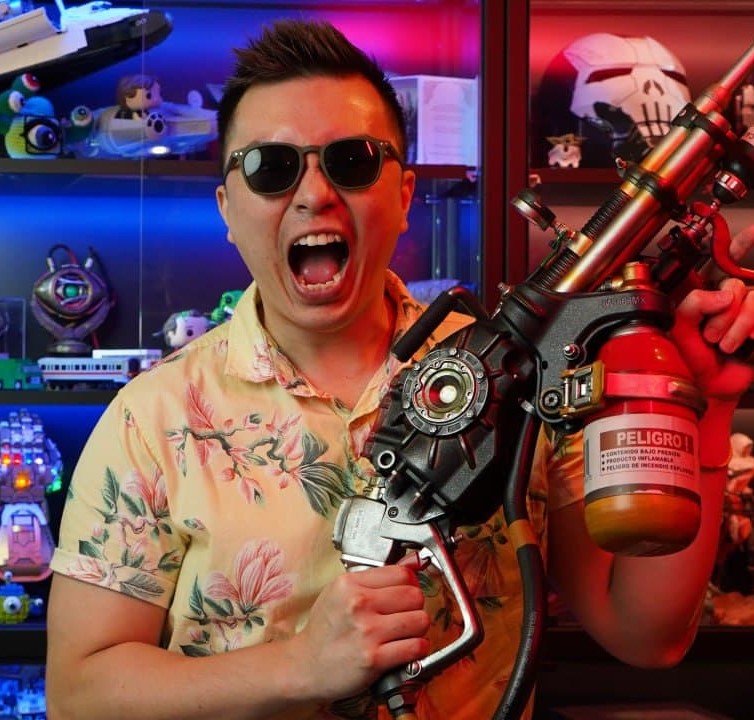Housemarque Games is definitely a familiar name to many invested in the PlayStation ecosystem. After all, the studio that brought us such classics including Super Stardust HD, Resogun, Dead Nation, and soon, the upcoming PS5 exclusive, Returnal, needs little or no introduction.
From a studio that made its name with arcade-like experiences, to venturing out of their comfort zone and picking up valuable lessons with less than favourable reviews for newer projects, the journey of Housemarque Games is akin to the constant loop Selene, our heroine in Returnal, endures.
Just like the upcoming roguelike third-person shooter, with each success, there is progress. With each failure, there is something to learn that makes the next attempt easier.
To help us understand more about the way Housemarque approached development for Returnal and what it means to the team, we spoke to Narrative Director Gregory Louden and Business Development and Marketing Director Mikael Haveri.
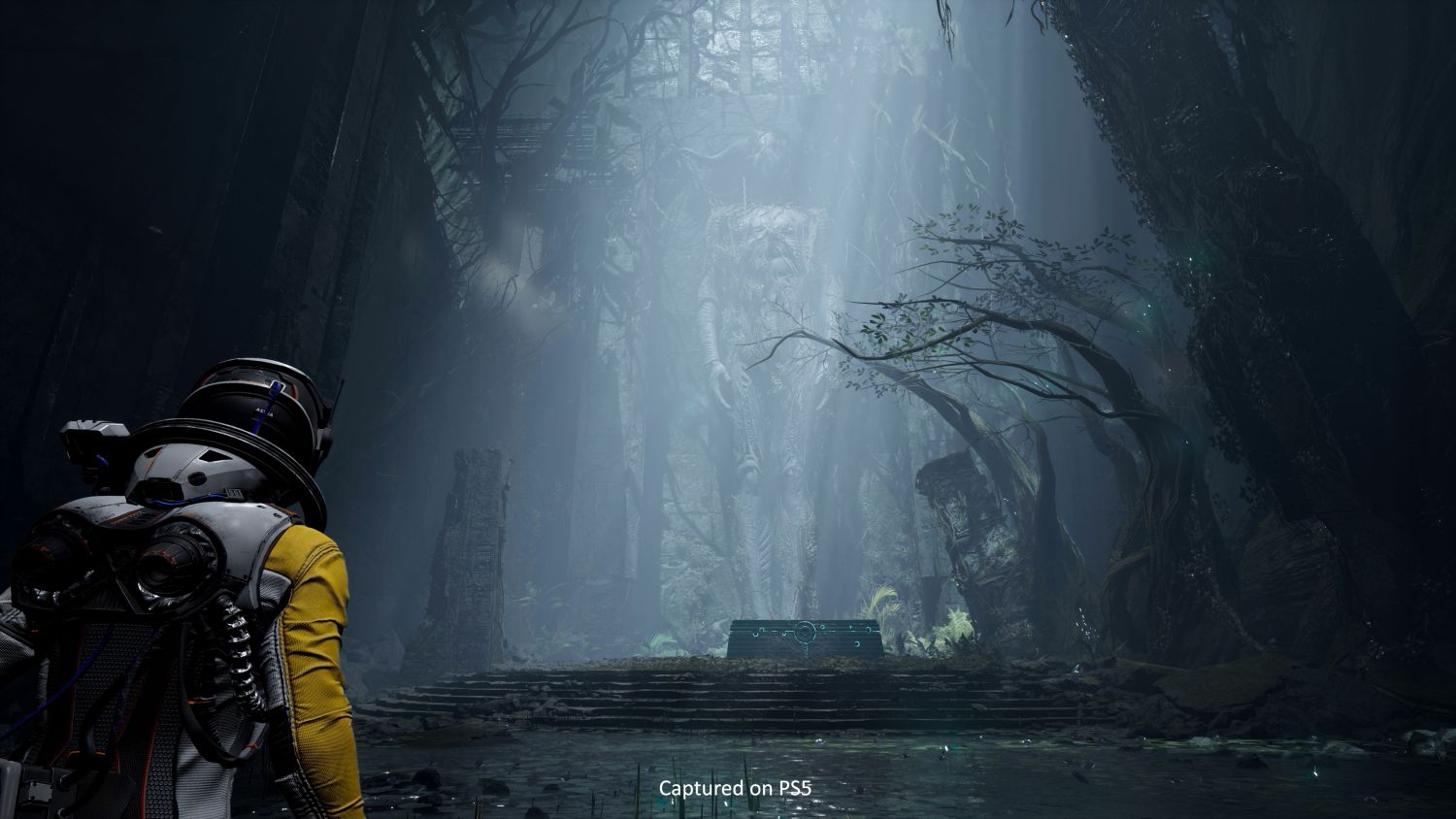
Seeking Legacy
There really is no escaping the arcade legacy of Housemarque Games. The studio that infamously coined the term, “arcade is dead,” in 2018 was trying to move away from its foundations in pursuit of something bigger. Yet, success was hard to come by, and while the third-person shooter Stormdivers did not knock the socks off anyone in 2019, it paved the way for what would be a core aspect of Returnal.
For Housemarque, “Returnal combines a lot of our arcade and bullet hell legacy into a more AA+ type experience,” Louden explained. “It is one of a kind in many ways, being a third-person action shooter and also having roguelike elements on this scale.”

The perspective may have shifted, but the formula is undoubtedly familiar to fans of the studio’s arcade legacy. For both Louden and Haveri, the hope is that Returnal would be “the extension of Housemarque games that fans have been waiting for.”
It most certainly helps that the game is also a roguelike, refreshing the game each time the player meets the end as Greek-American ASTRA deep-space scout, Selene. In a sense, it is like a new kind of arcade experience that tells a non-linear story as you explore the alien world of Atropos in Returnal.
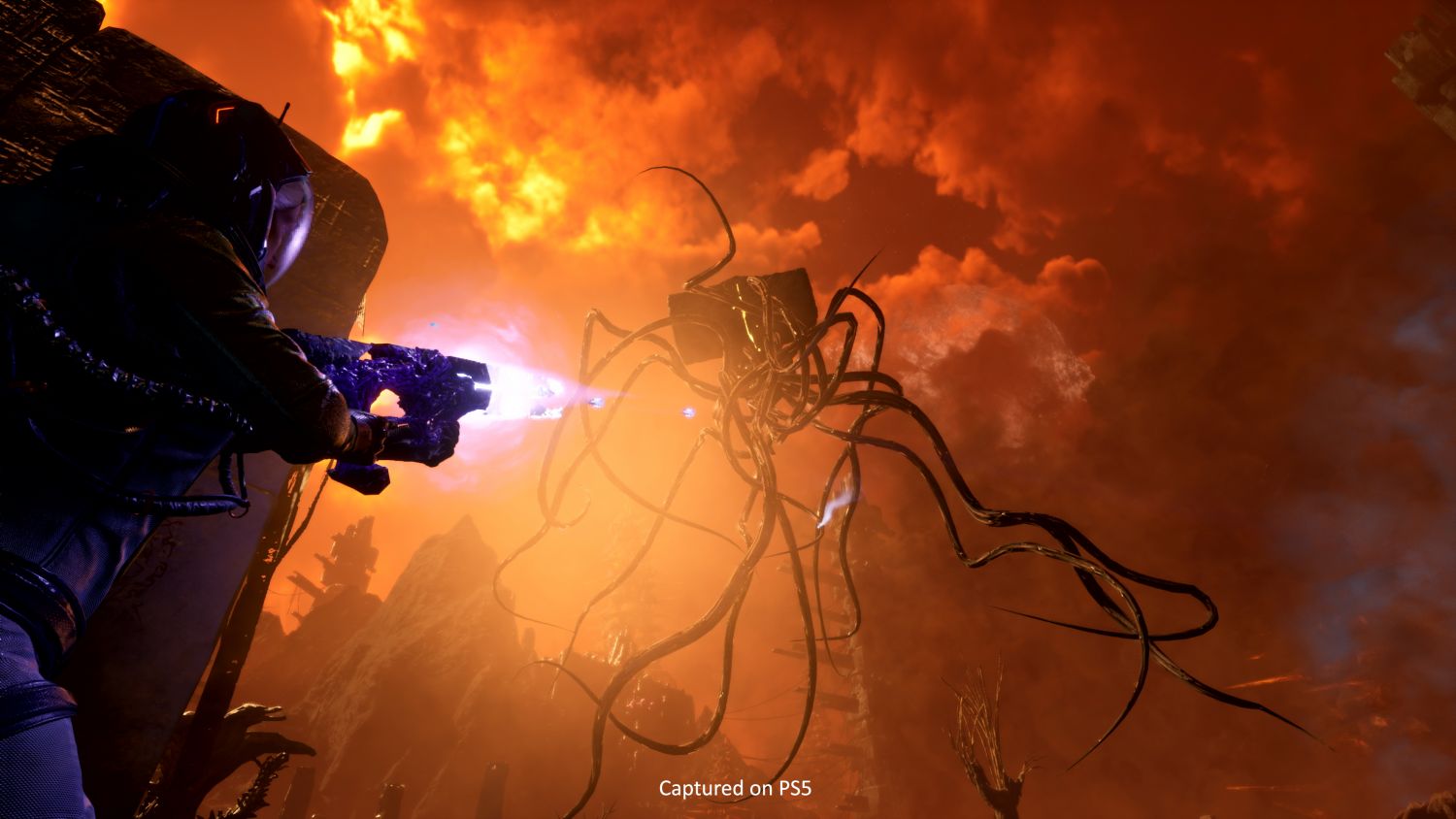
Every time you step onto Atropos, hand-crafted environments are shuffled to create a procedurally generated series of challenges. This means a “new layout of the world and challenges to confront” for every attempt at a run, even if the story beats remain the same.
There is a sense of progress each time as players begin learning more and more about the intricacies of Returnal. Just like Selene, you are developing a better understanding of Atropos, unlocking pieces of the story bit by bit.
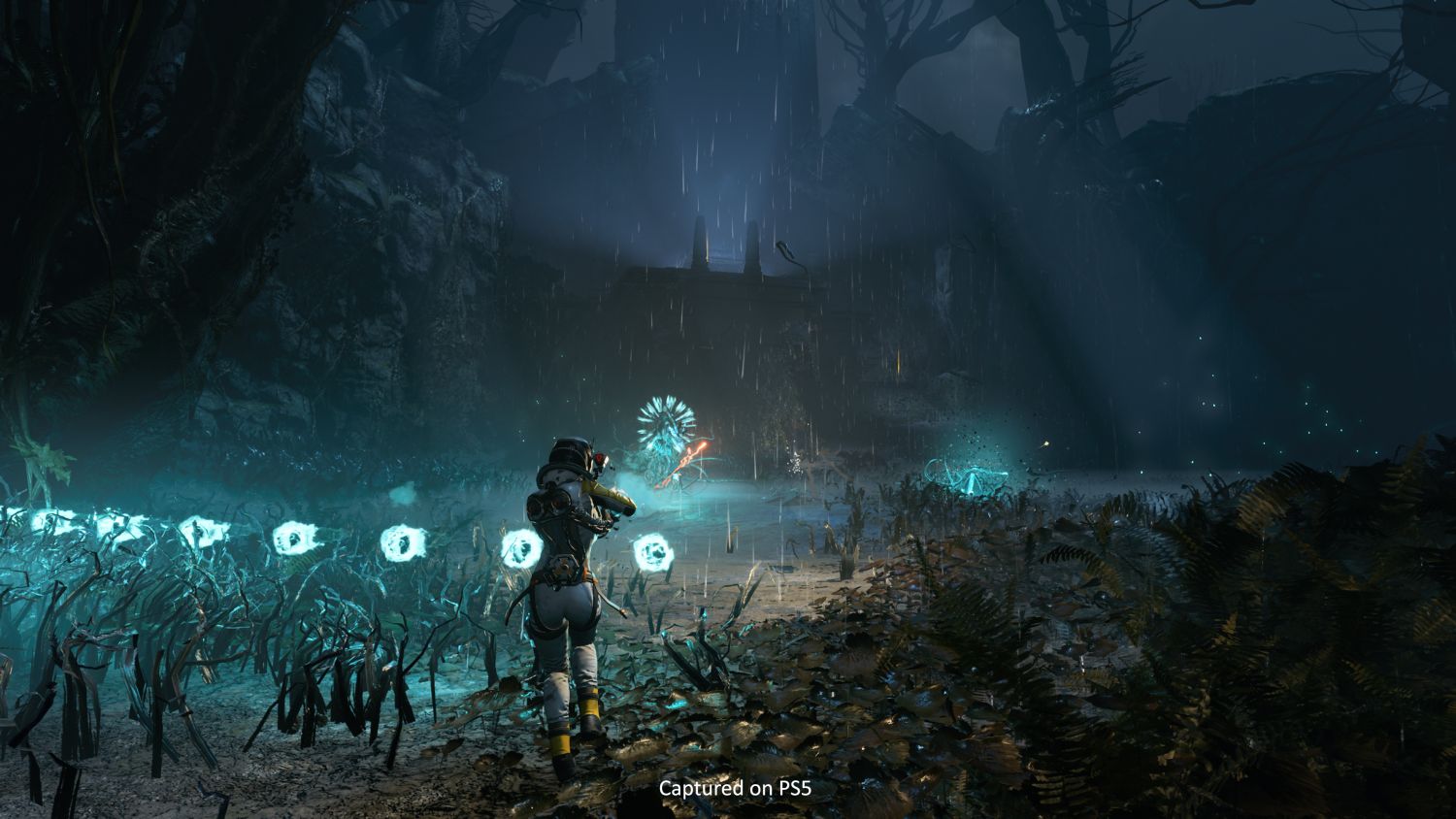
“We have done a lot of testing with this modular structure and are quite confident that this hybrid approach of handcrafted and procedural will be a gift that keeps on giving,” Haveri added.
The world also begins to open up more and allows for more ways to play, especially in the area of combat.
Speaking Through Gameplay
Fighting the dangerous alien hordes on a mysterious planet has echoes of Housemarque’s other games like Resogun and Alienation. The thick of the action lies squarely on combat, and for Returnal, that is the central pillar of the whole experience.
According to Louden, “The combat is the first thing we started with and that actually fell into place quite fast,” with the player ‘in full control’ at every moment. Housemarque’s years of past experience in melding combat with how the narrative develops work in the development team’s favour, pushing both the player and the story forward at every juncture.

As you contend with the many unique enemies on Atropos, Returnal constantly teases the underlying enigma that drives the worldbuilding efforts from Housemarque.
The environments, the way the alien world comes together, and Selene’s journey as the interloper have plenty of room to manoeuvre, and the team is not stopping there. Intimate first-person sequences lend another dimension to the storytelling, and you can expect audio logs, cinematics, and more to flesh out the lore.
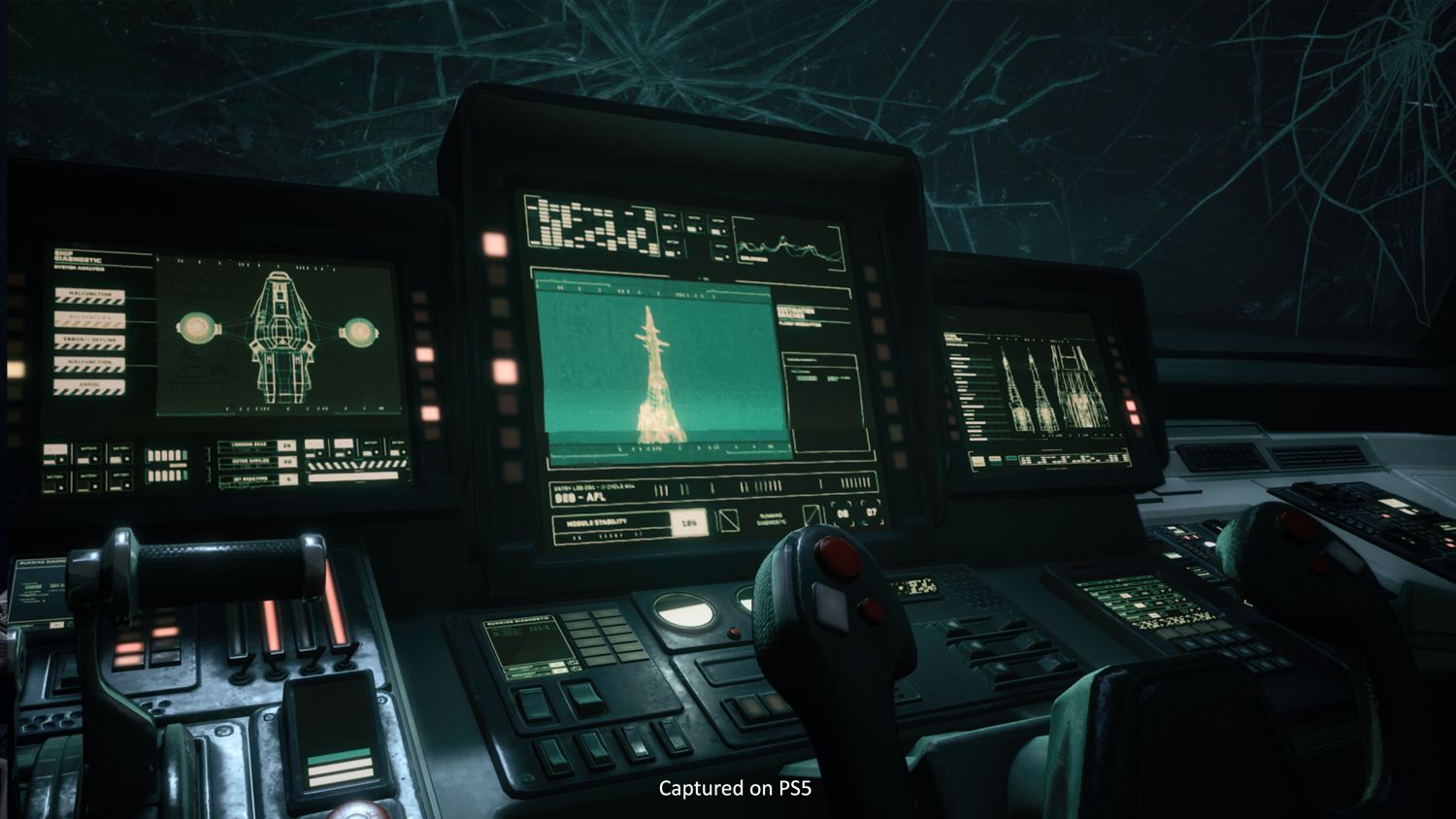
It is important to highlight that Atropos is a character in itself, with its overall design visually and audibly playing huge roles in the narrative of Returnal. That is not all, of course.
“We have put a lot of effort into our world-building and subtext. Players should look out for the xeno-archives for visual storytelling, xenoglyphs for translations, and also our environment and sound design to get lost in Returnal,” Louden emphasised.
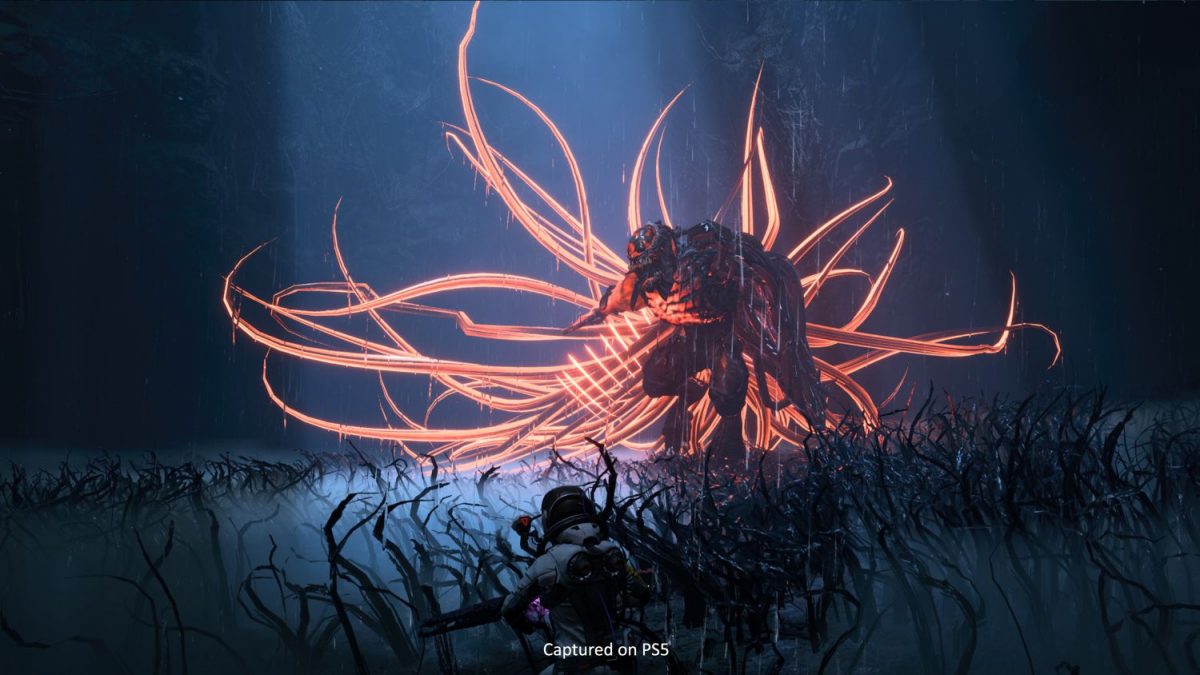
“In Returnal, we are doing something new with storytelling, for us, it has been about defining what is Housemarque’s storytelling,” Haveri added. “We want to create something new and tell our story in a new way.”
Judging from what we have seen so far from the game, and what there is to come, you cannot really argue with that. As Selene goes through the many loops that make up Returnal, it is also representing the rebirth of Housemarque’s legacy as a studio, with a more nuanced take on the arcade experience the gaming world has come to know and love.
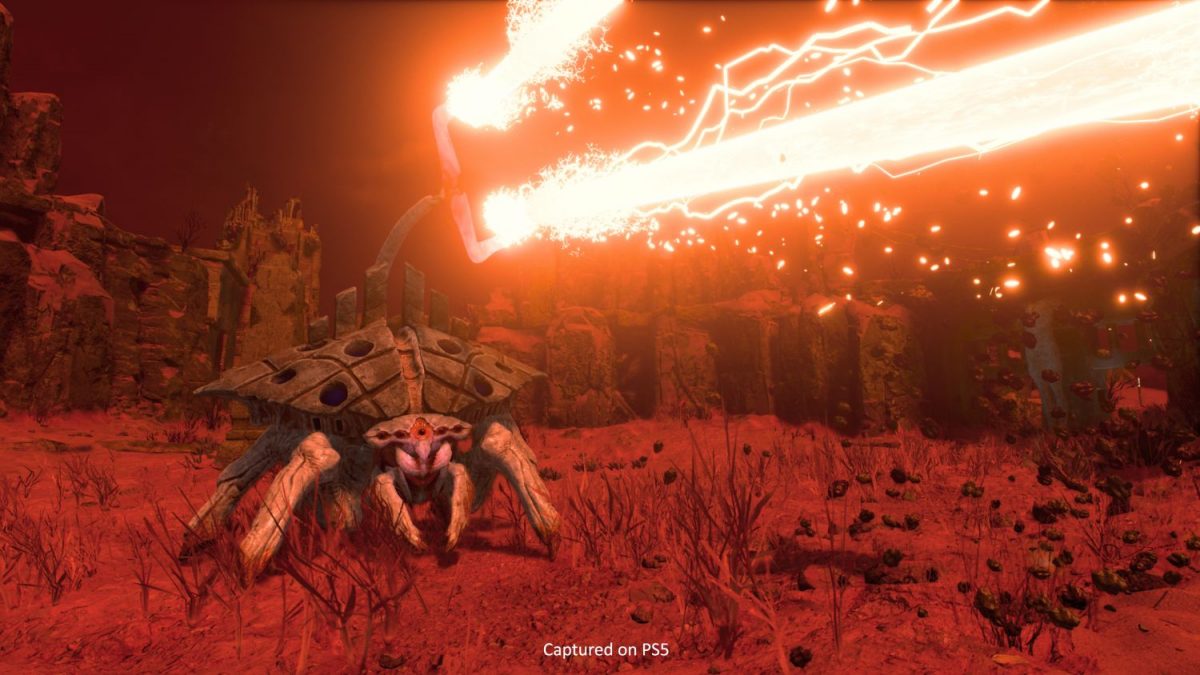
Returnal will be released on 30 April 2021.

